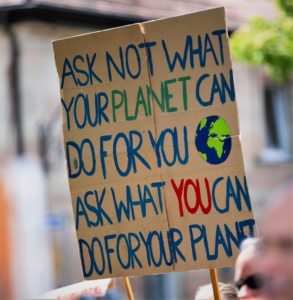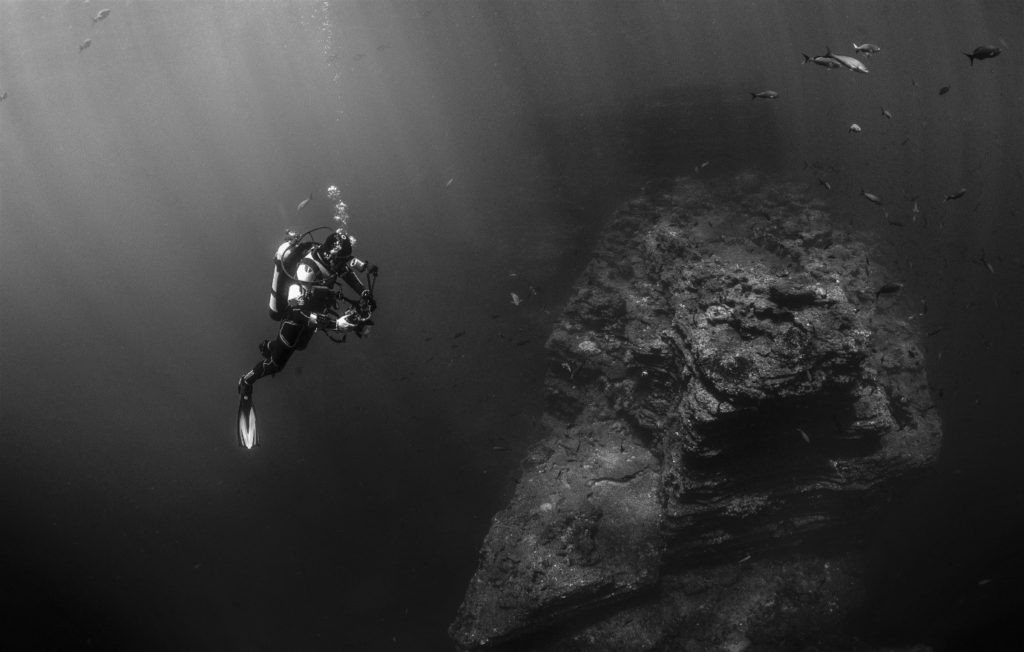The vastness of the many environmental concerns we face often fuels the perception that local and individual action can make little difference. In reality, it’s systemic change that’s needed. To legitimately tackle the impacts of climate change and create more sustainable and socially just places to live, decisive action by governments and the powerful actors in society is crucial. However, we have waited a long time for such action to announce itself.
Indeed, as the impacts of climate breakdown continue to become more prevalent, with this summer’s vast flooding and wildfires from the Amazon to the Arctic presenting sharp examples of this, there is no clear or coordinated plan of action on the horizon. The pathway toward global sustainability, it’s fair to say, has yet to enter the construction phase. When considering how to respond to and correct this inaction and denial, perhaps us citizens have a bigger role to play than commonly thought. While it may seem illusory, the realisation of systemic change will be heavily dependent upon civic response and transformative action which pushes for alternative futures. Central to achieving this is the practice of citizen science.
What is citizen science?
Broadly defined, citizen science is a means of participatory research, commonly coordinated by Non-Governmental Organisations and environmental charities, wherein members of the public work with professional scientists to produce scientific knowledge. Advanced as a means of tackling both local and global concerns, by strengthening the voice and organisation of citizens, citizen science has been developed as a way of challenging what powerful actors conceive as important and as possible in environmental decision-making arenas.
It is not just through the production of knowledge that this is achieved, however. The development of learning outcomes amongst volunteers – improved understanding of scientific and environmental concerns, enhanced environmental stewardship and empowerment – is a key aspect of citizen science. Most crucially, citizen science can also lead to the development of a critical awareness of why social and political change is needed and, indeed, how it can be achieved. It is this active nature which separates citizen science from processes of public consultation and other forms of civic participation.
With a focus on the western world, the evident tragedy of our times is the abhorrent public disservice of governments. Self-interest and short-termism are continuously hindering human and environmental prosperity. Rather than giving in, however, it is important to find ways of creating alternative, more just futures. Citizen science presents an intriguing example of this. It is an increasingly valued platform from which to challenge and transform regimes of governance, where the production of alternative knowledge and social action are key.
Expanding on Robert Putnam’s essay Bowling Alone, which reflects on the gradual decline of community and social capital from the 1950s onward, I position citizen science as a practice with vast potential to revitalise civic engagement and create a citizen-led resistance against the governance regimes which are facilitating the continued destruction of our planet. Currently, citizen science swims alone, against a tide of failing conservation measures and a distinct lack of recognition of the challenges at hand. But by harnessing public concern and responding to the drivers of climate breakdown, citizen science can empower citizens to collectively play their role in shaping a better future. The environmental challenges we face do not call for apathy or societal resignation, nor prayers and wishful thinking, but empowered, transformative action. Citizen science is one way of realising this.

Borrowing from JFK’s immortal words, citizen science is actively challenging the supposed societal role of members of the public (Spiske, 2019).
How can volunteers help?
Generally, citizen science is based on collective models of participation. In this sense, it gives volunteers who are not trained experts in a field of study the chance to participate in authentic research projects. The practice’s authenticity comes from volunteers taking part in different aspects of the process of scientific inquiry — including data gathering, cleaning, analysing and disseminating— as part of these projects.
Importantly, the volunteers are vital to the success of projects. It is their time and effort that allow projects to make meaningful contributions which reflect both internal and external value. Internal, in the sense that citizen science can instigate learning and personal developments amongst participants, and external, by way of assisting policy and decision-making through the production of knowledge. Utilising these together, citizen science has vast potential to transform science-society-political arrangements.
In keeping with the theme of swimming against the tide, to demonstrate citizen science in action it is useful to consider Northern Ireland’s vast array of marine citizen science projects. While individual projects follow various different objectives and methodological structures, as well as vastly diverse participant groups, they all share a number of core components. Primarily, that they operate as means of empowering both the local knowledge of citizens, as well as the citizens themselves.
This aspect may appear more evident in projects which have influenced legislative change - such as Seasearch diving projects which used volunteer recordings regarding the condition of marine habitats and species to call for the designation of marine conservation zones - but is inherent in all professionally-managed citizen science initiatives. For example, this can be seen within marine litter surveys, cetacean monitoring schemes and shark tagging projects. Volunteers range from environmental activists to conservationists, as well as citizens who have responded to the calls of Blue Planet and decided to play their part in addressing the impacts of plastic pollution and climate change.

Seasearch diving projects are one example of citizen science in Northern Ireland (Johnson, 2014).
Beyond nature: developing citizenship and social responsibility
While citizen science projects centre on practically tackling environmental issues, their remit goes well beyond nature and resource concerns. Projects also address the non-ecological dimensions of unsustainability, such as, inequality, injustice and lack of democratic accountability. In this regard citizen science can be seen as a means of converting the environmental interest of participants into a more dynamic development of citizenship and social responsibility.
By becoming critically conscious of the wider forces of politics and power which interact with the subject of environmental conservation, citizen science participants can begin to understand sustainability as a wide-ranging topic. It’s an issue which deals with securing human rights, lowering socio-economic disparities and ensuring the demands of the human economy do not outstrip the regenerative capacities of the eco-systems upon which they depend.
The past few decades have been defined by many things, but perhaps no more so that the waning of social capital and civic reciprocity. In Bowling Alone, Putnam exemplifies this by discussing the slow transformation of the classic American hobby of bowling. Once a sport played with and against friends in leagues and tournaments, it has more commonly become a pastime played alone. This, of course, is one example of many social activities which once fostered engagement and togetherness but are now defined by solidarity and confinement. Putnam demonstrates how this reflects upon the wider collapse of community in the western world and the subsequent rise of separation, isolation and segregation.
Citizen science, as a social activity, offers a progressive and integrative response to these concerns. It fulfils both environmental and social interests. It is not an end in itself; it is a means to one. Citizen science is well-placed to take advantage of the changing relation between science, policy and society, and to provide a genuine challenge to the dominant power structures which have left us teetering on the edge of ecological and political collapse. If citizen science can evade the dirty and evil politics which have been seen to smear and even criminalise efforts of public protest and environmental action, then it can play a significant role in shaping a more sustainable and engaged society.
